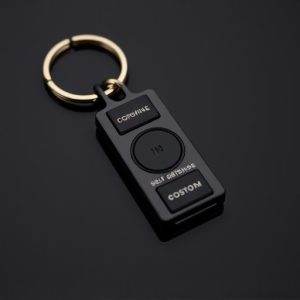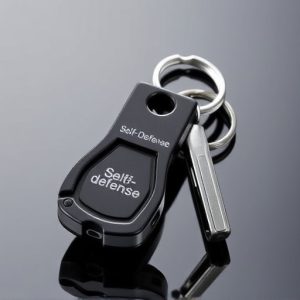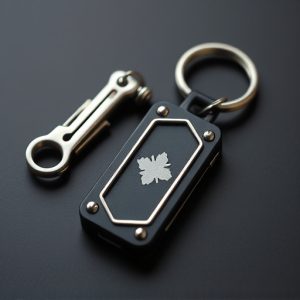Legal Requirements for Student Self-Defense Keychains: A Comprehensive Guide
Students considering self-defense keychains in the US must navigate state-by-state laws, which vary…….
Students considering self-defense keychains in the US must navigate state-by-state laws, which vary from permitting their use under specific conditions to outright bans due to safety concerns. Before carrying a keychain weapon, students should research state regulations regarding design, functionality, registration, and permitted circumstances. Balancing personal safety needs, legal compliance, and convenience is essential; understanding local laws and school policies ensures responsible ownership and empowers students to prioritize their well-being.
“Uncover the power of self-defense at your fingertips with our comprehensive guide to legal keychain weapons for students. In today’s world, being prepared is key, and understanding state laws regarding these compact defense tools is essential. We explore the diverse options available, from legal requirements to safety measures, ensuring students are informed about their rights and responsibilities. Discover the types of keychain weapons allowed, learn how to make an informed choice, and stay safe while adhering to local regulations.”
- Understanding State Laws on Self-Defense Keychains
- Legal Requirements for Carrying a Keychain Weapon as a Student
- Types of Legal Keychain Weapons and Their Allowances
- How to Choose the Right Self-Defense Keychain for Students
- Safety Measures and Responsibilities When Using Keychain Weapons
Understanding State Laws on Self-Defense Keychains
In many states, the possession of a self-defense keychain is regulated under specific laws pertaining to legal keychain weapons for students and the general public. It’s crucial to understand these regulations before carrying such a device as they vary widely from one state to another. Some states explicitly permit the use of keychains with certain restrictions on size, capacity, and type of defense mechanism employed. Others may place significant restrictions or outright ban them due to concerns over their potential misuse.
Students considering carrying a self-defense keychain should conduct thorough research into their state’s laws. This involves checking local and state statutes, consulting law enforcement agencies, and staying informed about any recent changes in legislation. Legal keychain weapons for students must adhere to these guidelines to ensure compliance, thereby avoiding legal repercussions and ensuring personal safety.
Legal Requirements for Carrying a Keychain Weapon as a Student
Carrying a keychain weapon, especially for students, raises important legal considerations. The legality of keychain weapons varies significantly from state to state, with many having strict regulations regarding hidden or concealed carrying devices, including those designed for self-defense. It’s crucial to understand that not all states recognize keychain weapons as legal defense tools, and their classification often depends on the specific design and functionality.
Students considering carrying a legal keychain weapon should familiarize themselves with their state’s specific laws. This includes understanding the type of weapon that is permitted, the circumstances under which it can be carried, and any necessary permits or licenses. Some states allow certain types of keychain weapons, like pepper spray or personal stun devices, while others may restrict or ban all forms of concealed carrying, even for self-defense.
Types of Legal Keychain Weapons and Their Allowances
In many states, legal keychain weapons are specifically defined and regulated, with certain restrictions based on their design and intended use. For students considering self-defense options, understanding these regulations is paramount. Common types of legal keychain weapons include small pepper spray devices and personal stun guns, which are often allowed if they meet specific size and force requirements. These compact tools offer a non-lethal means of deterring potential threats in close quarters, such as on campus or during travel.
The legality of these keychain weapons varies across states, with some permitting them without a permit or license, while others may require registration or have restrictions on capacity or voltage. Students should carefully review their state’s laws to ensure they are using a legal and safe self-defense option. Knowing the specifics of what constitutes a legal keychain weapon can empower students to make informed decisions for their personal safety.
How to Choose the Right Self-Defense Keychain for Students
Choosing the right self-defense keychain for students involves understanding both personal needs and legal requirements. First, consider the environment in which it will be used—on campus, in public transportation, or while walking alone at night. Different scenarios may call for distinct features like a strong grip, a sharp edge, or even a stun function. Legal keychain weapons for students must comply with state regulations; ensure the device is not classified as a weapon and does not violate school policies.
When selecting, prioritize safety and convenience. Look for keychains that are easy to operate under stress, offering quick-release mechanisms or automatic activation features. Material quality and durability are also crucial, ensuring the keychain can withstand regular use without compromising functionality. Always verify local laws and consult with school authorities before carrying any self-defense tool to ensure compliance with both legal keychain weapons for students guidelines and institutional policies.
Safety Measures and Responsibilities When Using Keychain Weapons
When carrying a keychain weapon for self-defense, it’s crucial to prioritize safety measures. These devices can be powerful tools, but their use comes with responsibilities. Always ensure the weapon is easily distinguishable from everyday keys; clear and rapid identification can prevent accidental deployment in inappropriate settings. Many legal keychain weapons are designed with specific safety features like locking mechanisms or quick-release buttons, which should be understood and practiced to avoid any harm to oneself or others.
Responsibility also extends to understanding local laws regarding hidden weapons. Students carrying legal keychain weapons must be aware of their rights and restrictions, especially on school grounds. Compliance with these laws not only ensures the weapon remains a valid self-defense option but also prevents any potential legal repercussions. In the event of an emergency, being prepared and knowledgeable about your defense tool can make all the difference in effectively deterring or responding to threats.
When it comes to self-defense keychains, understanding your state’s laws is paramount. As discussed, various states have different regulations regarding keychain weapons, especially for students. It’s essential to know what constitutes a legal keychain weapon and the specific allowances in your region. Always prioritize safety by choosing the right tool and adhering to responsible practices when carrying any self-defense device. Remember, being informed about Legal Keychain Weapons for Students is the first step towards ensuring personal safety and complying with local regulations.


